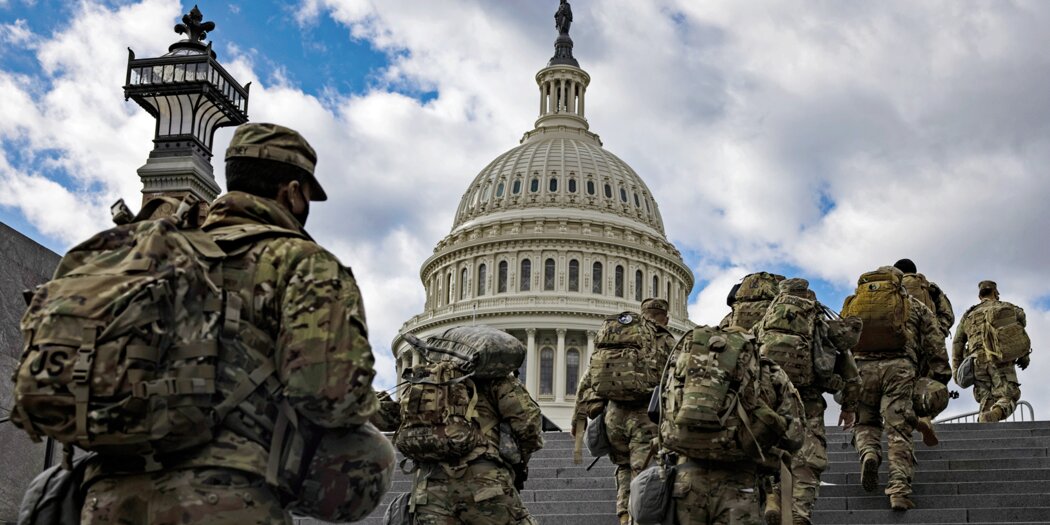Generally, federal military forces are not allowed to carry out civilian law enforcement duties against U.S. citizens except in times of emergency.
An 18th-century wartime law called the Insurrection Act is the main legal mechanism that a president can use to activate the military or National Guard during times of rebellion or unrest. But Trump didn’t invoke the Insurrection Act on Saturday.
Instead, he relied on a similar federal law that allows the president to federalize National Guard troops under certain circumstances. He federalized part of California’s National Guard under what is known as Title 10 authority, which places him, not the governor, atop the chain of command, according to Newsom’s office.
The National Guard is a hybrid entity that serves both state and federal interests. Often it operates under state command and control, using state funding. Sometimes National Guard troops will be assigned by their state to serve federal missions, remaining under state command but using federal funding.
The law cited by Trump’s proclamation places National Guard troops under federal command. The law says that can be done under three circumstances: When the U.S. is invaded or in danger of invasion; when there is a rebellion or danger of rebellion against the authority of the U.S. government, or when the President is unable to “execute the laws of the United States,” with regular forces.
But the law also says that orders for those purposes “shall be issued through the governors of the States.” It’s not immediately clear if the president can activate National Guard troops without the order of that state’s governor.
The role of the National Guard troops will be limited
Notably, Trump’s proclamation says the National Guard troops will play a supporting role by protecting ICE officers as they enforce the law, rather than having the troops perform law enforcement work.
Steve Vladeck, a professor at the Georgetown University Law Center who specializes in military justice and national security law, says that’s because the National Guard troops can’t legally engage in ordinary law enforcement activities unless Trump first invokes the Insurrection Act.
Vladeck said the move raises the risk that the troops could end up using force while filling that “protection” role. The move could also be a precursor to other, more aggressive troop deployments down the road, he wrote on his website.
“There’s nothing these troops will be allowed to do that, for example, the ICE officers against whom these protests have been directed could not do themselves,” Vladeck wrote.








